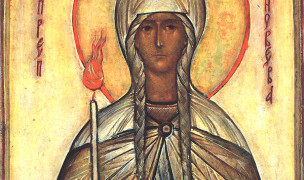 20 Terms
20 TermsHome > Terms > Armenian (HY) > կյանք
կյանք
Human life is priceless. But this has not stopped economists trying to put a financial value on it. One reason is to help firms and policymakers to make better decisions on how much to spend on costly safety measures designed to reduce the loss of life. Another is to help insurers and courts judge how much compensation to pay in the event of, say, a fatal accident. One way to value a life is to calculate a person’s human capital by working out how much he or she would earn were they to survive to a ripe old age. This could result in very different sums being paid to victims of the same accident. After an air crash, probably more money would go to the family of a first-class passenger than to that of someone flying economy. This may not seem fair. Nor would using this method to decide what to spend on safety measures, as it would mean much higher expenditure on avoiding the death of, say, an investment banker than on saving the life of a teacher or coal miner. It would also imply spending more on safety measures for young people and being positively reckless with the lives of retired people. Another approach is to analyze the risks that people are voluntarily willing to take, and how much they require to be paid for taking them. Taking into account differences in wages for high death-risk and low death-risk jobs, and allowing for differences in education, experience, and so on, it is possible to calculate roughly what value people put on their own lives. In industrialized countries, most studies using this method come up with a value of $5m–10m.
- Szófaj: noun
- Szinonimák:
- Blossary:
- Ipar/Tárgykör: Economy
- Kategória: Economics
- Company: The Economist
- Termék:
- Betűszó/Rövidítés:
További nyelvek:
Mit szeretne mondani?
Terms in the News
Featured Terms
phylum placozoa
Macroscopic, flattened marine animals, composed of ventral and dorsal epithelial layers enclosing ...
phylum cnidaria
Cnidarians. Hydras, hydroids, jellyfish, sea anemones, and corals. Free-swimming or sessile, with ...
share a term with millions
Share a term with millions of users around the world and increase your online visibility.Share a ...
oak
Genus native to the Northern Hemisphere with spirally arranged leaves, catkins for flowers and ...
Everest
The last but not least mount Everest. The Earth's highest mountain, with a peak at 8,848 metres ...
aglaonema
Genus of about 20 species of usually rhizomatous, evergreen perennials from tropical forest in Asia. ...
Robojelly
Robojelly is a hydrogen-powered robot desgined in the United States that moves through the water ...
Ferdinand Porsche
Ferdinand Porsche (3 September 1875 – 30 January 1951) was an Austrian-German automotive engineer ...
Marzieh Afkham
Marzieh Afkham, who is the country’s first foreign ministry spokeswoman, will head a mission in east ...
define1
Share a term with millions of users around the world and increase your online visibility.Share a ...
Beküldő
Featured blossaries
dnatalia
0
Terms
60
Szójegyzékek
2
Követő
Starbucks most popular secret recipe
 6 Terms
6 Terms
Browers Terms By Category
- Meteorology(9063)
- General weather(899)
- Atmospheric chemistry(558)
- Wind(46)
- Clouds(40)
- Storms(37)
Weather(10671) Terms
- Yachting(31)
- Ship parts(4)
- Boat rentals(2)
- General sailing(1)
Sailing(38) Terms
- Home theatre system(386)
- Television(289)
- Amplifier(190)
- Digital camera(164)
- Digital photo frame(27)
- Radio(7)
Consumer electronics(1079) Terms
- Film titles(41)
- Film studies(26)
- Filmmaking(17)
- Film types(13)
Cinema(97) Terms
- Health insurance(1657)
- Medicare & Medicaid(969)
- Life insurance(359)
- General insurance(50)
- Commercial insurance(4)
- Travel insurance(1)





